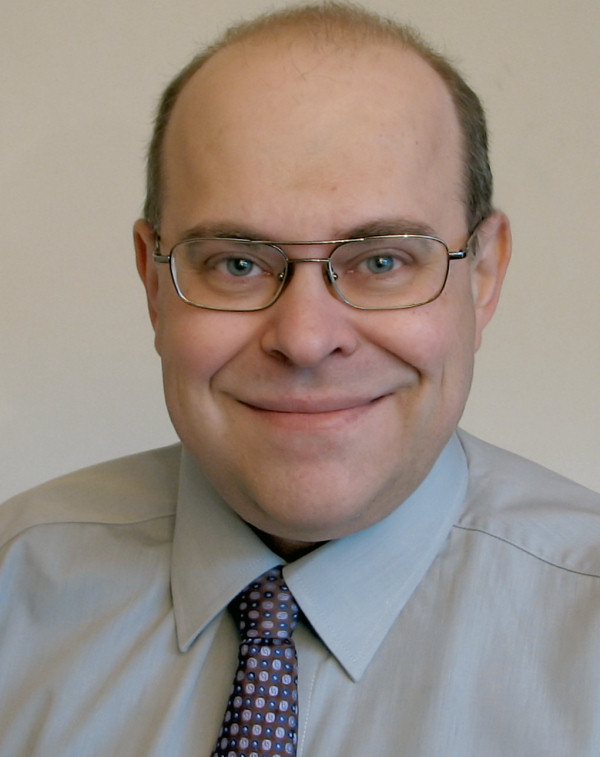|

The ICT, Society and Human Beings International Conference 2013 (part of the IADIS Multi Conference on Computer Science and Information Systems 2013) was hosted in Prague, Czech Republic, during 24 to 26 July, 2013.
The effects of ICT on human beings as well as the interaction between ICT, individuals, and society were all within the center of this conference. Both analyses of interactions and effects were important. Changes in behaviour, perspectives, values, competencies, human and psychological aspects and feelings were all of interest. Reflections on past, present, and future challenges – especially planning for handling the latter were encouraged.
In general all types of research strategies were encouraged, and especially cross-disciplinary and multi-disciplinary studies. The main topics for submissions were: Globalization and ICT; Life environment and ICT; Life role and ICT; ICT and effects on humans; Perspectives on ICT; Desirable goals and ICT and Actions for reaching the Good Information Society.
 The IADIS ICT, Society and Human Beings 2013 conference received 83 submissions from more than 27 countries. Each submission had been anonymously reviewed by an average of four independent reviewers, to ensure that the accepted submissions were of a high standard. Consequently only 13 full papers were approved which meant an acceptance rate of 16 %. A few more papers were accepted as short papers, reflection papers and posters. The IADIS ICT, Society and Human Beings 2013 conference received 83 submissions from more than 27 countries. Each submission had been anonymously reviewed by an average of four independent reviewers, to ensure that the accepted submissions were of a high standard. Consequently only 13 full papers were approved which meant an acceptance rate of 16 %. A few more papers were accepted as short papers, reflection papers and posters.
An extended version of the best papers will be published in the IADIS International Journal on Computer Science and Information Systems (ISSN: 1646-3692) and in the IADIS International Journal on WWW/Internet (ISSN: 1645-7641) Some of the best papers were eligible to be extended and enhanced as book chapters for inclusion in a book to be published by IGI Global
Further to the presentation of full papers, short papers, reflection papers and posters, the conference also offered two keynote presentations by Professor Gunilla Bradley, Professor Emerita, Royal Institute of Technology, Sweden and also to Dr. Valeri Souchkov, ICG Training & Consulting Enschede, The Netherlands.
Keynote presentation

"WHAT IS QUALITY OF LIFE IN THE ICT SOCIETY?"
by Gunilla Bradley,
Professor Em, Royal Institute of Technology, Sweden
Abstract
Some issues that will be addressed are:
• Main changes in people´s lives – structures and roles. What changes are going on in the professional, private and citizen's role? How can we balance our various roles at the increasing convergence of them? Important contributing factors to Quality of Life and how to achieve.
• Main changes in the labour market – work force in the so-called flexible companies. New ways to influence our work life conditions as well as to contribute to societal change.
• Impact of network organizations on human behavior, values, motivation and feelings. Our relation to space and time, what kind of stress? Dialectics of values and life styles.
• Some trends in psychosocial communication and ICT, collaboration and global communication patterns. The home as a communication sphere in the network era - new opportunities and risks.
• Convergence and acceleration are main processes at the interplay between technology, societal structure, organizational design, and human roles in the society. I will reflect on the convergence theory and the discourse in Media Technology and Informatics about the present power relations and movements globally. I will present reflections on risks and opportunities in the 21 st Century ICT society. Where are the "energy centers" that can activate and create changes towards the "Good Information Society"? Can agreements on Goals and Visions for that society be achieved?

"INNOVATIVE PROBLEM SOLVING FOR SOCIAL APPLICATIONS: A STRUCTURED APPROACH"
by Valeri Souchkov,
ICG Training & Consulting Enschede, The Netherlands
Abstract
Social arrangements in societal participation like care, education and cultural events often undergo a state of "paralysis by analysis"; no logical way from perceived needs or challenges seems to lead to tasteful-, human- and altruistic solutions. In this keynote the renown expert in the TRIZ methodology for creative problem solving will take your hand and lead you through the arcade landscape of generating-, selecting and implementing ideas for social architecture and the elegant conveyance of societal processes. Often when trying to solve a problem, constraints might not allow us to apply directly or adapt existing solutions. In such cases we need to search beyond known ideas and concepts and come up with an innovative solution. To produce innovative ideas psychological barriers must be broken and solution search space has to be expanded. Without a structured approach it can take a long time and result in numerous costly trials and errors. Long-term studies of the vast amount of creative and innovative solutions resulted in the discovery of a number of universal principles and knowledge-based strategies which can be used to successfully attack difficult problems. The talk will focus on demonstrating in the interactive way how these principles and strategies can be used to facilitate and boost the process of innovative and creative problem solving in the various domains of this IADIS conference like "Web-based Communities", "Social Media", "E-Learning", "Gaming", "E-health" etc.
The ICT, Society and Human Beings Conference 2013 proceedings was published in Book (ISBN: 978-972-8939-91-5).
Program Committee Members:
Aldo De Moor, Communitysense, Netherlands
Alice Robbin, Indiana University Bloomington, Usa
Ana Isabel B. B. Paraguay, Officio e Ambiente Ltda, Brazil
Andrea Gaggioli, Universita Cattolica Milano, Italy
Andrea Omicini, Università di Bologna, Italy
Andrea Perego, European Commission, Joint Research Centre, Italy
Anna Croon Fors, Umeå University, Sweden
Antonella De Angeli, University Of Trento, Italy
Antonio Marturano, Sacred Heart Catholic University Of Rome, Italy
Antonio Piccinno, University Degli Studi Di Bari , Italy
Arthur Tatnall, Victoria University, Australia
Birgitta Kopp, Ludwig-Maximillians-University Munich, Germany
Brian Whitworth, Massey University, New Zealand
Cecile K. M. Crutzen, Open University Of The Netherlands, Netherlands
Christian Licoppe, Telecom Paris Tech, France
Czarina Saloma-akpedonu, Ateneo De Manila University, Philippines
Daniela Fogli, University Of Brescia, Italy
David Hakken, Indiana University, Usa
David J. Gunkel, Northern Illinois University, Usa
Denise Oram, Glyndwr University, United Kingdom
Eerikki Maki, Aalto University School Of Science And Technology, Finland
Eila Jarvenpaa, Aalto University, Finland
Eleni Berki, University Of Tampere, Finland
Elizabeth Adams, James Madison University, United States
Eloy Irigoyen, E.t.s.i. Upv - Ehu, Spain
Elvis Mazzoni, University Of Bologna, Italy
Heikki Lyytinen, University Of Jyvaskyla, Finland
Helen Edwards, University Of Sunderland, United Kingdom
Ilaria Lombardi, Università Degli Studi Di Torino, Italy
Ilkka Arminen, University Of Tampere, Finland
Iraklis Paraskakis, South East European Research Centre, Greece
Jan Meyer (Pr.M), Project Management Educationalists, South Africa
John R. Lee, University Of Edinburgh, United Kingdom
Jorge Franco, Sao Paulo University, Brazil
Juri Valtanen, University Of Tampere, Finland
Jutta Weber, University of Paderborn, Germany
Kai Kimppa, University Of Turku, Finland
Karin Danielsson-Öberg, Umea University, Sweden
Kiyoshi Murata, Meiji University, Japan
Lech Zacher, Kozminski Business School, Poland
Liisa Ilomaki, University Of Helsinki, Finland
Liliana Ardissono, University Of Torino, Italy
Lynne Hall, University Of Sunderland, United Kingdom
Lynne Humphries, University Of Sunderland, United Kingdom
Ma.Theresa Rivera, Xavier University, Philippines
Magda Hercheui, University Of Westminster, United Kingdom
Mandi Axmann, Open Universities Australia, Australia
Manuela Repetto, Istituto Tecnologie Didattiche, Italy
Marco Lazzari, University of Bergamo, Italy
Margaret Tan , Nanyang Technological University, Singapore
Maria Cristina Matteucci, University Of Bologna, Italy
Marja Vehviläinen, University Of Tampere, Finland
Michael Gurstein, CCIRDT, Canada
Nestor Garay-Vitoria, Universidad del País Vasco/Euskal Herriko Uniberts, Spain
Nicola Doering, Ilmenau University Of Technology, Germany
Paivi Fadjukoff, University of Jyväskylä, Finland
Paolo Francesco Cottone, University Of Padua, Italy
Peter Day, University Of Brighton, United Kingdom
Peter Singleton, Cambridge Health Informatics , United Kingdom
Pirjo Elovaara, Blekinge Institute Of Technology, Sweden
Reima Suomi, University of Turku, Finland
Roberto Polillo, University of Milano Bicocca, Italy
Rosa Lanzilotti, University Degli Studi Di Bari, Italy
Rudi Schmiede, Darmstadt University Of Technology, Germany
Sakari Taipale, University of Jyväskylä, Finland
Sangeeta Sharma, University Of Rajasthan, India
Sanna Salantera, University Of Turku, Finland
Seppo Vayrynen, University Of Oulu, Finland
Stefania Bocconi, CNR, Istituto Tecnologie Didattiche, Italy
Stylianos Hatzipanagos, Kings College London , United Kingdom
Susan Turner, Napier University, United Kingdom
Taping Lu, National Taipei University of Technology, Taiwan
Timo Lainema, Turku School Of Economics, Finland
Timo Leimbach, Fraunhofer ISI, Germany
Uiara Montedo, Polytechnic School/University of São Paulo, Brazil
Ulrika Danielsson, Mid Sweden University, Sweden
Vincenzo D Andrea, University Of Trento, Italy
Virve Siirak, Tallinn University Of Technology, Estonia
William McIver Jr, University of New Brunswick & IFIP TC9, Canada
Wolfgang Hofkirchner, Vienna University Of Technology, Austria
|

 The IADIS ICT, Society and Human Beings 2013 conference received 83 submissions from more than 27 countries. Each submission had been anonymously reviewed by an average of four independent reviewers, to ensure that the accepted submissions were of a high standard. Consequently only 13 full papers were approved which meant an acceptance rate of 16 %. A few more papers were accepted as short papers, reflection papers and posters.
The IADIS ICT, Society and Human Beings 2013 conference received 83 submissions from more than 27 countries. Each submission had been anonymously reviewed by an average of four independent reviewers, to ensure that the accepted submissions were of a high standard. Consequently only 13 full papers were approved which meant an acceptance rate of 16 %. A few more papers were accepted as short papers, reflection papers and posters.
